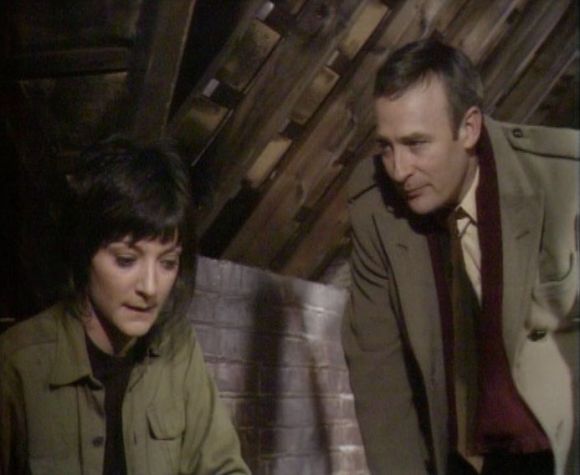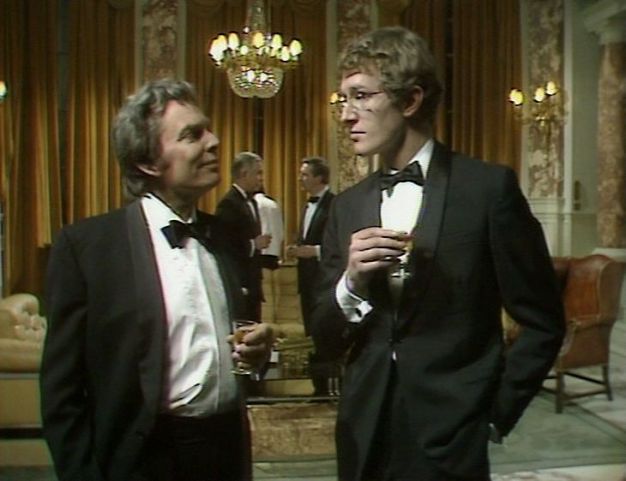
Fans of Edward Woodward (or indeed anybody who enjoys good archive drama) have two reasons to celebrate – as Callan is set to air on Talking Pictures TV (Sky 328, Virgin 445, Freesat 306, Freeview 81) from early next month and The Equalizer will be coming soon to Forces TV (Sky 181, Virgin 277, Freesat 165, Freeview 96).
Both channels have stealthily been increasing their rota of archive television over the last year or two. TPTV has given the likes of Gideon’s Way and Public Eye their first rebroadcasts for decades, whilst Armchair Theatre is another item of interest newly added to their schedule.
Over at Forces TV, UFO, the Thames era Special Branch and Never The Twain have all caught my eye (the latter especially, as the DVDs are long OOP). Indeed, my one wish for the future is that we see some deeper digging into the archives from all channels, so that series which are unavailable on DVD are given another airing ….
I’ve written extensively elsewhere on the blog about each surviving episode of Callan. Short summary? It’s unmissable. Woodward is perfect as the world-weary state-sponsored assassin with a conscience. Friendless, apart from a social outcast called Lonely (Russell Hunter – who, like Woodward, essayed a career defining role) each week Callan has to negotiate his way through a series of moral dilemmas, which are punctuated with flashes of violence.
During the first two series (made in black and white and sadly incomplete in the archives) Callan reported to a rotating group of superiors all called Hunter (beginning with Ronald Radd). By series three, with the show now in colour, William Squire had assumed the role of Hunter (apart from a brief hiatus during the fourth and final series, when Callan found himself in the hotseat …)
There are very few disappointing stories from the four series run, although Amos Green Must Live is one which hasn’t aged well (its attempt to tackle racial politics looks rather crude today). As for excellent episodes there’s an embarrassment of riches – Let’s Kill Everybody, Death of a Hunter, Suddenly – At Home, Breakout, That’ll Be The Day, Call Me Enemy, etc, etc.
Although initially reported in some quarters as a remake of Callan, The Equalizer was a very different series – although it did have certain callbacks (given Woodward’s involvement, that possibly wasn’t surprising). Mind you, if David Callan found leaving the Section to be tricky, then Robert McCall strolled out of the Company in the first episode with nonchalant ease.
There’s something very appealing about watching the middle-aged Woodward (impeccably dressed and accented) walking through the mean and dirty New York streets dispensing summary justice as and when required. Whilst a less tortured and questioning individual than David Callan, Robert McCall did have his spasms of self-doubt and it’s on those occasions that Woodward really stepped up to the mark.
It’s an obvious comment, but neither series would have had the same impact if Edward Woodward hadn’t been front and centre. And whenever he was given a particularly meaty script, the sparks would fly.
Star-spotting is a good game to play when watching The Equalizer. Already established names such as Jim Dale, Linda Thorson, Telly Savalas, Robert Mitchum and Adam Ant pop up (as does Meat Loaf in a brief cameo) whilst there’s early appearances from John Goodman, Christian Slater and Bradley Whitford amongst many others. There was also a strong family feel with Michele and Roy Dotrice appearing in different episodes (Roy Dotrice had a memorable turn in Trial by Ordeal – my personal favourite).
Kudos to Talking Pictures TV and Forces TV for taking the decision to air these, as they’ve been off British television screens for far too long. It’d be lovely to think that both series could develop a new audience – this would also hopefully spark some people into investigating what other archive treats might also exist. And there’s quite a few ….
























